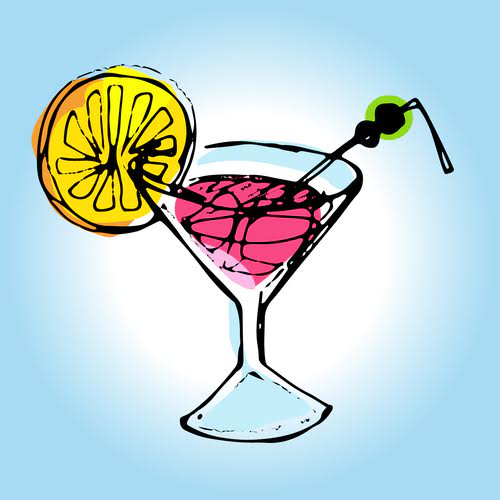For moderate alcohol withdrawal, benzodiazepines or barbiturates may be prescribed to reduce the risk of seizures and delirium tremens. beer withdrawal symptoms If you continue to experience symptoms despite medication, your doctor may prescribe additional medications such as beta-blockers or clonidine. Alcohol withdrawal symptoms are a range of impacts that can occur when you stop drinking or significantly reduce your alcohol intake abruptly. The duration of someone’s drinking, the amount of alcohol consumed on a regular basis, and any co-occurring medical conditions may all impact withdrawal severity. While an unpleasant byproduct of stopping drinking, withdrawal symptoms are usually short-lived.
Length and Severity of Alcohol Use

As alcohol leaves the system, nausea and vomiting emerge as prominent symptoms within 6-8 hours after the last drink. You’ll experience peak nausea triggers during the first hours of withdrawal, often accompanied by sweating and tremors that can intensify your discomfort. If you wanna buy best discounted fake Rolex watches UK, you cannot miss this website. It must make you feel regret it!
Swiss AAA copy Breitling watches UK on sale are worth having. You can place an order online conveniently and efficiently.The frequency of vomiting varies based on your drinking history and overall health status. Once alcohol consumption stops, your body often responds with excessive sweating and clammy skin as part of the withdrawal process.
What Does It Mean To Have a Substance Abuse Problem?
I brushed it off as fatigue, but this is actually a classic withdrawal symptom. Alcohol disrupts neurotransmitters in the brain, including those that help with focus and memory. When the alcohol is gone, your brain struggles to regain balance, and this imbalance makes it hard to concentrate. The foggy brain is your body’s way of readjusting after losing the sedative effect of alcohol, which it had grown used to. Serious alcohol misuse can decrease your lifespan by as much as 28 years compared to those who don’t drink.
Continuously Re-evaluating and Adjusting the Recovery Plan
- It is advisable to seek help from the Best Alcohol Rehabilitation Centre, as severe withdrawal symptoms require medical assistance.
- Withdrawal symptoms can begin within a few hours to a few days after the last drink.
- During severe alcohol withdrawal, mental confusion and disorientation affect up to 5% of heavy drinkers, particularly those consuming a pint or more of liquor daily.
- Anyone who has severe symptoms of alcohol withdrawal syndrome, such as seizures, hallucinations, or prolonged vomiting, needs immediate medical treatment.
- “Feeling a bit better. Luckily, my biggest withdrawals are insomnia and very itchy skin all over (face, arms, legs, back.) One concern I have is my swollen abdomen.”
You may experience bradycardia, a dangerously low heart rate, or develop various arrhythmias that require immediate medical attention. Your blood pressure might surge dramatically, especially during the initial withdrawal phase. Optimize your sleep hygiene by maintaining consistent bedtime routines and creating a dark, quiet environment.
This assessment should include an evaluation of the presence of coexisting medical and psychiatric conditions, the severity of the withdrawal symptoms, and the risk of withdrawal complications. This article reviews the typical timeline of alcohol withdrawal and recovery, outlining the key physical and mental changes that occur after your last drink. While these changes are gradual and variable, it sure helps to have realistic expectations. AWS is more common in adults, but children and teenagers who drink excessively may also experience the symptoms. You’re also at risk for AWS if you’ve previously had withdrawal symptoms or needed medical detox for a drinking problem.
Who Experiences Alcohol Withdrawal Symptoms?
While acute withdrawal headaches typically last a few days to a week, some people face prolonged episodes during Post-Acute Withdrawal Syndrome (PAWS) that can persist for months in cyclical patterns. Maintaining adequate vitamin and mineral intake through a balanced diet helps combat withdrawal symptoms. You can manage these symptoms through proper hydration, medical supervision, and prescribed interventions, as untreated withdrawal headaches may signal more serious complications. When you stop drinking alcohol, you’ll likely experience several common withdrawal symptoms within 6-12 hours.
By Buddy TBuddy T is a writer and founding member of the Online Al-Anon Outreach Committee with decades of experience writing about alcoholism. Because he is a member of a support group that stresses the importance of anonymity at the public level, he does not use his photograph or his real name on this website. “I’m back working, my skin’s cleared up, https://ecosoberhouse.com/ and I’ve cleaned up the mess I’ve made of my life. The sad truth is, I miss drinking, even after all the hell it has caused. But to go back will be my death.”
Why Do You Experience Withdrawal Symptoms?
There are many resources available to help, including peer support groups, counseling, therapy, and inpatient rehabilitation. During the 12- to 24-hour time frame after the last drink, most people will begin to have noticeable symptoms. These may still be mild, or the existing symptoms might increase in severity.
As your body gets used to no alcohol, different treatments can make you more comfortable and keep your symptoms from getting worse. Behavioral health treatment for alcohol problems is often (but not always) covered by insurance. In the United States, most states have low-cost or free rehabilitation programs for those who are uninsured. Here, you can buy 2025 top imitation Rolex watches UK with high quality.
You can buy 2025 best omega replica watches UK from the shop online.Research shows people who have a supportive social network are more likely to remain alcohol-free after withdrawal. Those with a wider circle of support have what is alcoholism a better chance of staying sober. It’s important to be honest about your alcohol use — and any other substance use — so your provider can give you the best care.

Remember, it is essential to seek professional advice before attempting to manage alcohol withdrawal, especially if you have any concerns about your health or the severity of your symptoms. With these things in mind, it’s important to weigh the pros and cons of tapering your alcohol use to make a fully informed decision. If your health, wellness, and even life may be at risk, quitting alcohol should only be attempted with the help of a medical professional. For example, healthcare providers usually don’t take patients off antidepressants suddenly; rather, they gradually lower the dosages to help reduce antidepressant discontinuation symptoms.
If your doctor feels you’re at risk, it will be important for you to have a thiamine supplement by IV for several days. They can continue for several days and are often at their most intense four to five days after your last serving of alcohol. If you are thinking about quitting drinking, talk to your healthcare provider. Medical supervision, behavioral health treatment, and mutual-aid groups can help you through alcohol withdrawal and stay stopped. Behavioral treatment programs are helpful for people who want to quit drinking.
